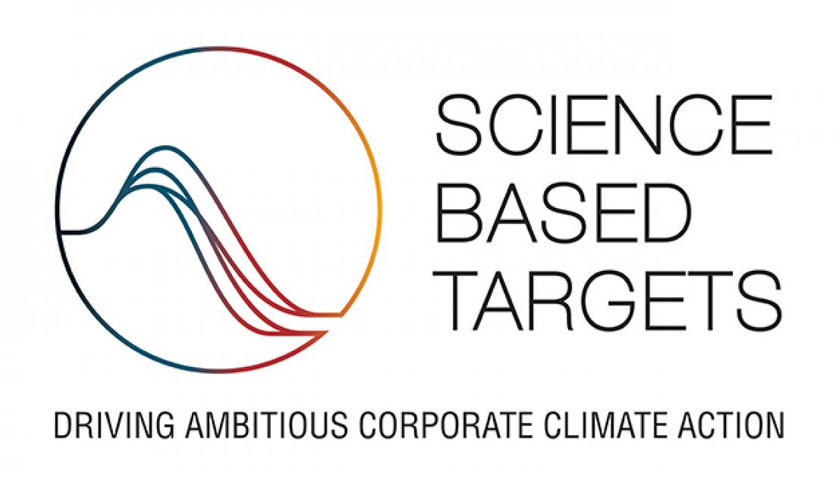Kepak Group has reached a major milestone on its sustainability journey, with formal approval of its climate targets from the Science Based Targets initiative (SBTi). This approval confirms Kepak’s emissions-reduction goals align with the 1.5°C trajectory set by the Paris Agreement – the most ambitious pathway for limiting global warming.
Key targets include:
- A 52.3% reduction in Scope 1 and 2 emissions by 2030 – equivalent to eliminating the annual emissions of more than 15,000 homes
- Net-zero emissions across the entire value chain by 2050
Kepak now stands among a select group of global food companies – including McDonald’s, Tesco and Aldi – with approved science-based targets.
“Our targets are not just numbers – they represent measurable, impactful action,” said Rebecca Thomson, Head of Sustainability at Kepak. “This is a proud moment for the entire team, and it’s just the beginning of what we aim to achieve.”
“Kepak is leading by example,” said Tiphaine Aires, Associate Director at the Carbon Trust. “The team’s work demonstrates the vital role of processors in driving farm-level decarbonisation and building a more sustainable food system.”
Proven Progress: What We’ve Achieved So Far
Between 2018 and 2024, Kepak has already made meaningful strides in reducing emissions and improving efficiency across its operations and supply chain:
- 40% reduction in Scope 1 & 2 emissions
🔹 Equivalent to removing over 21,000 petrol cars from the road for a year - 8% reduction in livestock emissions intensity (Scope 3)
🔹 Comparable to the carbon capture of nearly 300,000 mature trees over one year - 29% reduction in water use per tonne of product
🔹 Saving enough water annually to fill over 100 Olympic-sized swimming pools - 54% of electricity sourced from renewables
🔹 Equivalent to powering nearly 10,000 homes with green energy (target: 100% by 2030) - 22% increase in regenerative agriculture practices
🔹 Supporting healthier soils and biodiversity across beef farms in Ireland and the UK
How We’re Doing It
Efficiency & Electrification
- Energy Management Systems in place across sites
- Energy champions, dashboards, and operational routines driving performance
- LED lighting, high-efficiency boilers, and refrigeration upgrades
- Water reuse systems improving both energy and resource efficiency
Heat Recovery
- ActionZero’s Escopod at Kepak Athleague targeting >90% reduction in heating emissions
- Waste heat recovery from condensers and biomass boilers
Renewables
- Wind turbines supplying 40% (Cork) and 14% (Merthyr) of electricity
- AI-enabled turbine optimisation
- 100% renewable electricity contract secured for all Irish sites
- Ongoing investment in solar PV and anaerobic digestion
Cutting Fossil Fuels
- 30% reduction in gas oil use
🔹 Equivalent to saving 2.3 million litres of diesel - 7% reduction in natural gas
- 17% reduction in LPG
- Ongoing phase-out of high-GWP refrigerants (F-gases)
Working With Farmers for Lower-Carbon Agriculture
Kepak’s Scope 3 (agriculture) strategy includes:
- Promoting regenerative agriculture to improve soil health and sequester carbon
- Supporting beef producers in reducing livestock emissions intensity
- Encouraging adoption of sustainable land management practices
Targets: What We’re Working Toward
By 2030:
- 52.3% absolute reduction in Scope 1 & 2 emissions
- 50.4% reduction in Scope 3 (non-agriculture)
🔹 Equivalent to removing over 25,000 petrol cars from the road each year - 36.37% reduction in agricultural emissions (FLAG)
🔹 With zero deforestation across supply chains by 2025
By 2050:
- 90% reduction across total Scope 1, 2 & 3 emissions
- Net-zero across the entire value chain
To reach these goals, Kepak is:
- Expanding wind, solar, and anaerobic digestion capacity
- Rolling out heat pumps across more sites
- Deep retrofitting for energy efficiency
- Investing in farm-level carbon reduction initiatives
Kepak’s commitment to science-based targets puts climate action at the heart of its business – building a lower-carbon, more resilient food system for the future.
